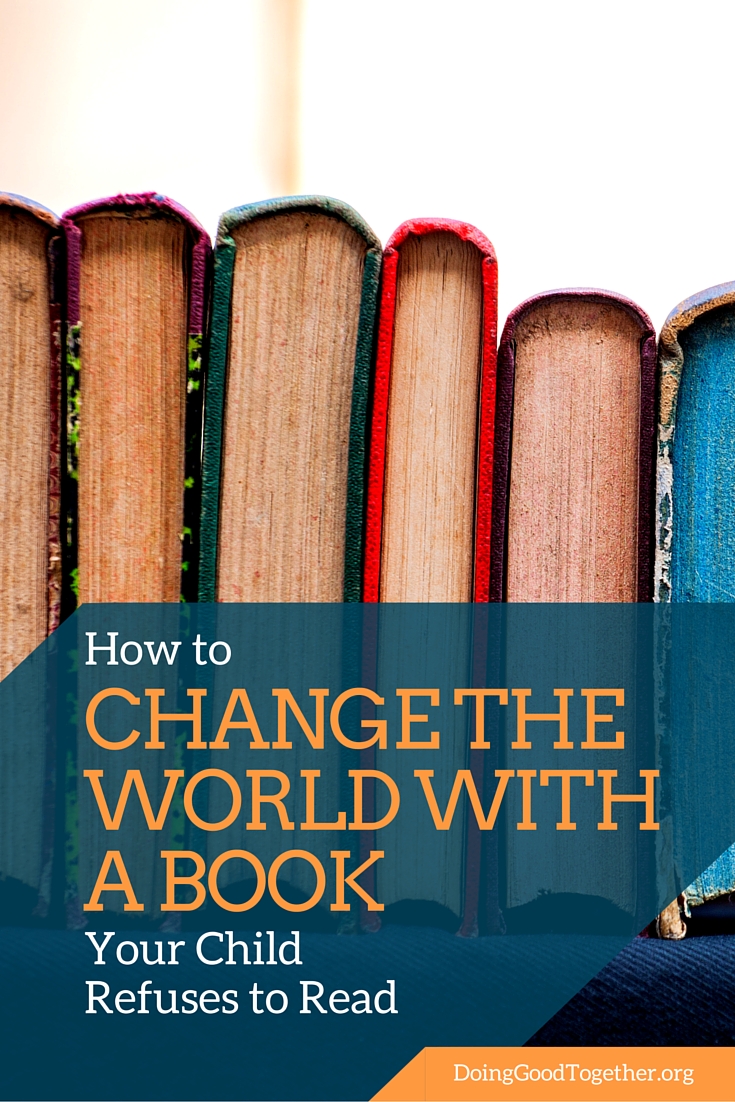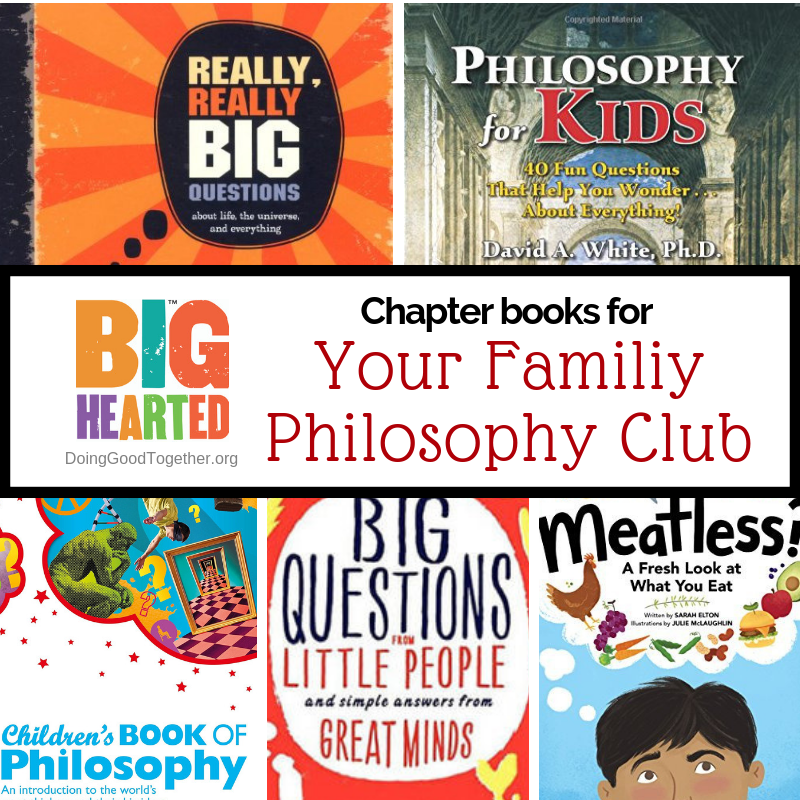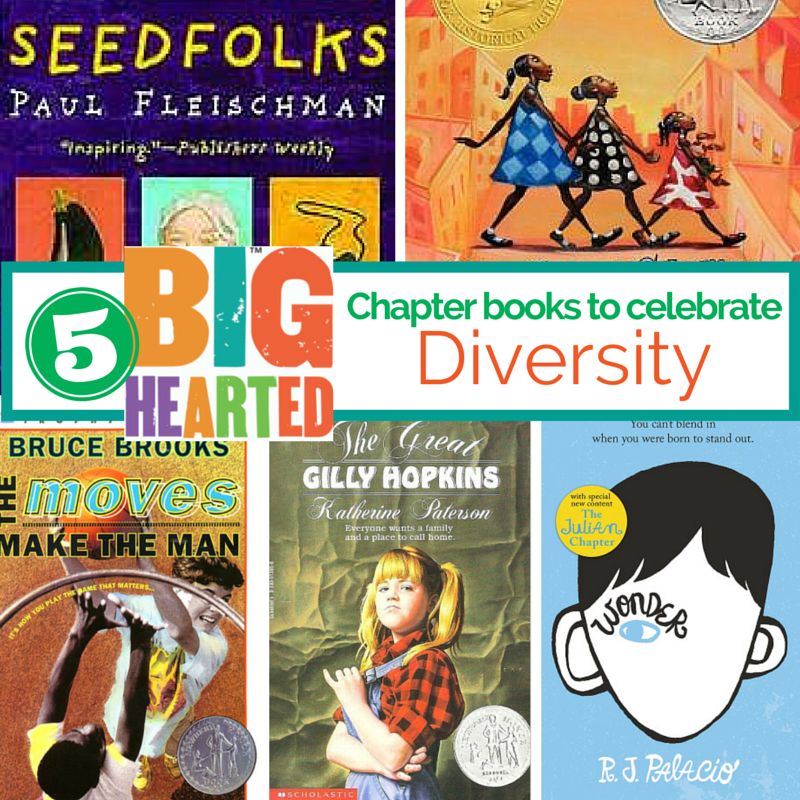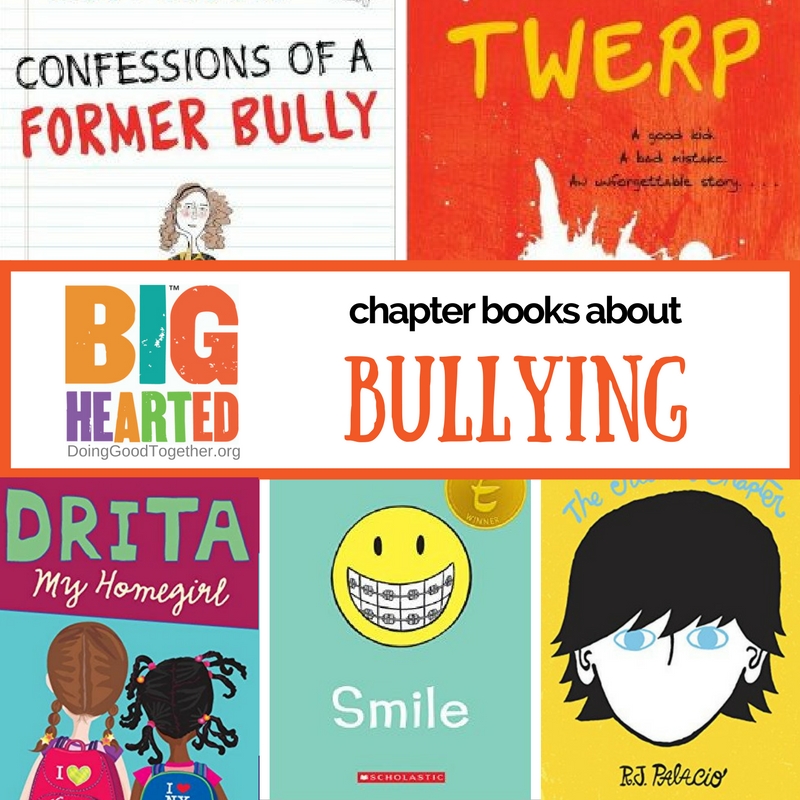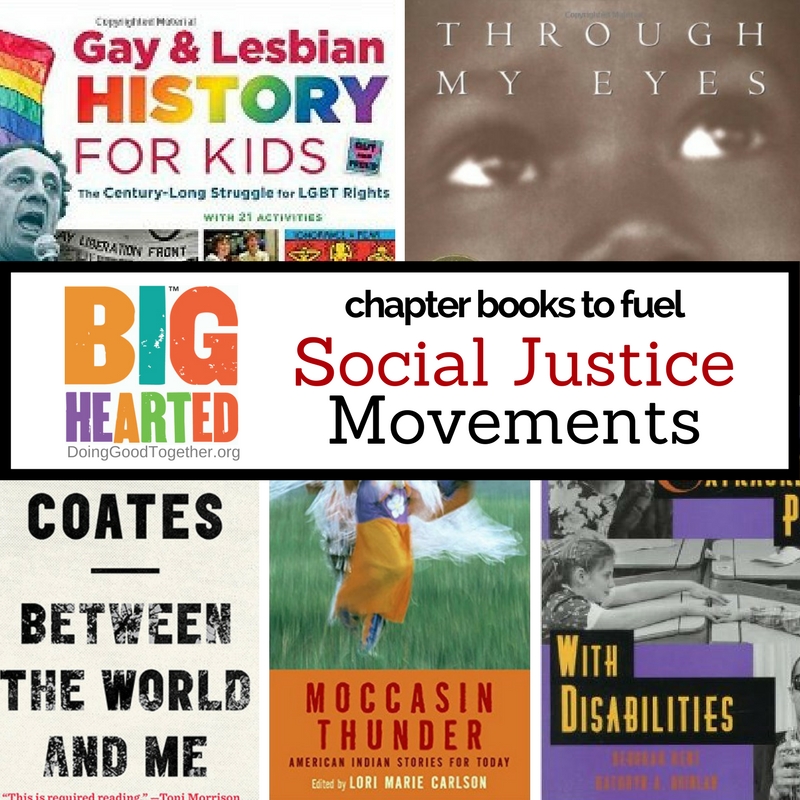The right book can do more than transport and entertain its readers. Powerful stories spark empathy for people we've never met. They inspire us to take action, to right injustices, or even simply to reach out to those around us.
Here at Doing Good Together™ we believe books are powerful tools for parents raising children who care and contribute. You may have noticed our growing collection of big-hearted book lists.
My own tween is a voracious reader.
Still, she resists my book suggestions with baffling stubbornness. I mean, the kid reads constantly, but she can't make time for Island of the Blue Dolphins. Really?
Whether your child loves to read, or simply hasn't met the right story yet, books are still the most powerful tool in your big-hearted arsenal. (Click to Tweet!)
So how do you inspire your older child to put down the latest goofy series or dystopian saga and pick up a book full of big ideas?
I'm here to share a few tricks that have been working for my family, and for some of the families in our Membership Circle.
Trust me, connecting your tween or teen with inspiring literature is worth your effort.
The right book will make empathy instinctive. A powerful story can inspire outrage over social injustices, bigotry, and misconceptions. Great fiction can both extend the learning about your last family service project and create enthusiasm for your next one. (Click to tweet!)
Emerging research is demonstrating what book lovers have always known instinctively: reading is an incredible tool for developing empathy, compassion, and insight into the world of others.
One study recently demonstrated that readers of the epic series Harry Potter demonstrated greater empathy and a lower tolerance for bullying than their peers.
Harry Potter tells a unique story, to be sure, but there is reason to believe that other great literature offers similar benefits.
Another study found that literary fiction, as opposed to popular genre fiction, develops empathy in readers of all ages. So we do need to stretch ourselves and our young readers outside their genre. Not exclusively, but regularly.
David Denby's new book Lit Up: One Reporter. Three Schools. Twenty-Four Books That Can Change Lives, is a must read for anyone with a teenager – or teenager-to-be – at home. He offers incredible insight and anecdotes about the impact exceptional fiction can have on who we become.
I know it can be hard to move young readers past their genre. As children grow older, it can be even more difficult for reading to compete with the lure of screen time. But with a little creative effort, we can light up our children with the power of story.
Here are seven tips for changing the world with a book your tween refuses to read.
1. Read to them.
Resist the urge to end story-time as soon as your child is old enough to read alone. Re-frame your former bedtime routine as a family book club. Take turns choosing the books you feature, and use this as an opportunity to expand their reading horizons. Our end-of-day reading time continues to be my family's favorite, most connected, most loving part of the day.
And take turns reading to one another, so your tween feels more like the equal she is becoming.
By reading aloud with your older child, you can bewitch them with stories they may never have picked up on their own. Let me tell you, my girls loved Anne of Green Gables in spite of themselves.
One night my eight-year-old interrupted to tell me, "Mom, you can make any story good, just with your voice. And being in here with us."
2. Read the book yourself.
I'll be honest. Though I love reading with my children, I rarely pick up a children's book during my precious me time. We read together often enough for me to research the perfect titles for DGT's latest book lists. I reserve late night reading time for my own explorations in fiction.
But sometimes, when I can't hook my daughter on a title I'm interested in, like Wonder, which is just too exceptional to miss, I forge ahead on my own.
Later, when I raved about the book to my friends (not to her, that would defeat my purpose), my daughter's interest was piqued. Just when I was about to loan it out, she decided to give it a try. Guess what, she loved it too, and it lead to many big-hearted conversations.
3. Turn up the volume.
Get your tween hooked on great story-telling and engaging literature by connecting them with audio books. You can find a wide-range of audio books at your local library. Listen together in the car or while tackling household chores. Listen together while you exercise your creativity on family night, whether you're using grown-up coloring books or an easel and paints.
4. Start where they are.
But what if your child is only interested in graphic novels? And by graphic novels, we're talking Garfield comics and the Diary of a Wimpy Kid series. I have a kid like that too. Here is the great news: there are so many phenomenal children's books available now, you're almost guaranteed to find one to match your child's current obsession. They've even turned amazing classic stories into graphic novels for the imagery inclined.
5. Read widely, and don't stop trying.
Once you've established a habit of reading together, cast a wide net. Visit your library often, and bring home a variety of titles. If you return them unread, don't get frustrated. Be proud that you've offered. Our book lists are only growing, so come back often for new suggestions.
If you have a service project coming up, consider checking out many different titles along that theme. Challenge your child to weed through the pile until they find one that sounds enticing, then read it together. Browse our collection of chapter books to find an issue you are passionate about.
6. Volunteer first.
If your child continues to resist, skip the reading time, and volunteer together instead. Perhaps after they've encountered an issue they care about, they'll be more interested to go home and read about those experiences. Be sure to reflect on your about the big ideas you encounter, whether you read together or not. Our Big-Hearted Families projects are full of reflection ideas related to a variety of volunteer experiences.
7. Give them the time to read.
When does your kid like to read? If they read on the way to school, keep interesting titles in the car. If they read before bed, stack them up on the bedside table. And above all, be sure your child has some gadget-free time each day when they just may get bored enough to lose themselves (or find themselves) in a story.
To inspire a love of reading is to give your child an incredible, life-long gift.
Still looking? Check out this post to discover 8 Acts of Kindness for Book Lovers.
Subscribe to DGT's Big-Hearted Families™ Blog and receive our latest tools right in your inbox.
Disclaimer: Doing Good Together™ is a participant in the Amazon Services LLC Associates Program, an affiliate advertising program designed to provide a means for sites to earn advertising fees by advertising and linking to Amazon.com.
The recommendations we offer are based solely on our mission to empower parents to raise children who care and contribute.

